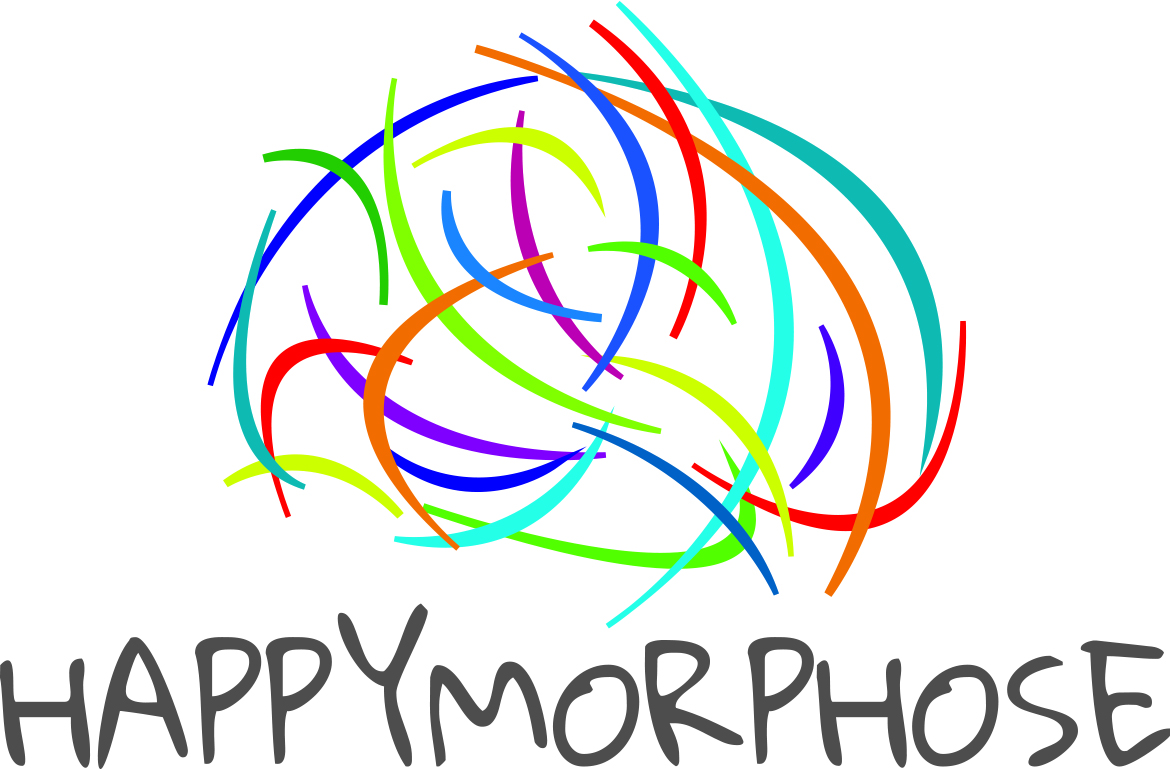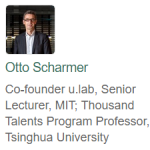
Gouvernance publique, esprit start up

La recherche spatiale en pleine métamorphose @ Anne Beaufumé
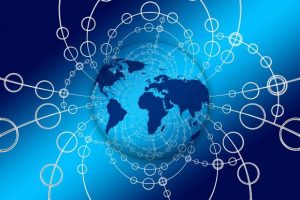 Article d’Anne Beaufumé pour le Club des Vigilants
Article d’Anne Beaufumé pour le Club des Vigilants
Jacques Blamont, astrophysicien, membre de l’Académie des sciences, acteur depuis toujours de l’innovation spatiale, propose de mettre en place ce qu’il appelle une « Fédération spatiale wikinomique »
La société tend à s’organiser comme un cerveau @ Usbek et Rica
Article de Vincent Lucchese du 17 janvier 2017
Plus qu’une troisième révolution industrielle ou qu’une crise écologique, l’époque que nous vivons est peut-être celle d’une métamorphose de l’humanité elle-même. À la croisée des neurosciences, de la sociologie et de l’anthropologie, Alain de Vulpian nous dit, que nous pourrions être à l’aube d’un nouveau degré de conscience collective.
Les élections américaines et la spirale dynamique @ Marie-Eve Marchand

24 novembre 2016 # vers des administrations libérées
Comment impulser des logiques humanistes et créatives au sein de nos services?
Ce colloque était proposé et co-construit par le CNFPT et l’IFORE.
Alain de Vulpian est intervenu en conclusion de cette journée.
Le schéma de son intervention est disponible sur demande.


ARRI – Nov. 2016 # Présentation du livre « Eloge de la métamorphose »
 Irène Dupoux-Couturier présente un ouvrage récent auquel son auteur et ami Alain de Vulpian l’a associée, intitulé « Eloge de la métamorphose » (édit.Saint-Simon). Ce livre a gagné le prix du meilleur essai en 2016 décerné par l’Académie Française. Original et introduit par Alain Berthoz, professeur au Collège de France, l’ouvrage s’adresse au grand public qui s’intéresse à l’évolution récente des grands courants socio-économiques dans un monde en plein bouleversement.
Irène Dupoux-Couturier présente un ouvrage récent auquel son auteur et ami Alain de Vulpian l’a associée, intitulé « Eloge de la métamorphose » (édit.Saint-Simon). Ce livre a gagné le prix du meilleur essai en 2016 décerné par l’Académie Française. Original et introduit par Alain Berthoz, professeur au Collège de France, l’ouvrage s’adresse au grand public qui s’intéresse à l’évolution récente des grands courants socio-économiques dans un monde en plein bouleversement.
Cette « marche vers une nouvelle humanité » est analysée par les auteurs comme le fruit d’une longue série d’observations sociologiques des changements de mentalité et de comportement de nos contemporains depuis les années 1950. Cela à partir d’entretiens en profondeur, certes coûteux, mais très révélateurs. Le tout faisant suite aux travaux de la COFREMCA et du CEFRI deux organismes fondés ou co-fondés par les auteurs et bien connus d’ARRI, repris plus récemment par le réseau international ,issu du MIT, de recherches sociologiques et managériales « SOL », dont Alain de Vulpian est le vice-président pour la France.
L’enquête auprès des « gens ordinaires » et surtout des jeunes, révèle la prise de conscience d’un phénomène nouveau. Le monde traverse depuis peu une phase d’évolution accélérée, qualifiée de métamorphose par allusion à des phénomènes naturels ( tels que la transformation d’une chenille rampante en beau papillon volant ) Il ne s’agit plus d’une crise, ni même d’une révolution, mais d’une mutation humaine. Celle-ci répond à l’attente des nouvelles générations désirant prendre en mains leur propre destin, par transfert du pouvoir décisionnel à de nouvelles formes d’actions collectives, conçues et gérées par « les gens » eux-mêmes.
Pour mieux comprendre la portée d’une étape aussi décisive, l’auteur du livre la compare à d’autres « métamorphoses » d’importance comparable, lors du développement du « phénomène humain » au cours des millénaires, depuis l’apparition de l’homo sapiens. En fait la première métamorphose de l’humanité date du néolithique – il n’y a que 15.000 ans – après des millions d’années d’évolution, pour passer du stade de l’hominidé à celui de l’homme semblable à nous.
Au XVIème et XVIIème, la civilisation européenne traverse une deuxième métamorphose avec l’avènement de la rationalité et des découvertes scientifiques quasi contemporaines, soit il n’y a que deux siècles. Et depuis une centaine d’année, les « gens ordinaires » sont devenus capables de gérer leur devenir. Ils en prennent conscience par des expériences inédites. Nous sommes au cœur d’un « processus de civilisation ». En témoigne la création de réseaux sociaux utilisant les progrès ultra rapides des moyens de communication. Ainsi que la floraison de nouvelles « start-up » pour résoudre des problèmes réels, avec les moyens du bord, de l’imagination créatrice et des financements nouveaux.
Cette nouvelle métamorphose en cours et qui s’étend au monde entier fonctionne comme un écosystème complexe et interconnecté. Autrement dit, comme un cerveau humain. Nous faisons désormais appel non seulement au cerceau rationnel mais émotionnel-relationnel et même spirituel. Ainsi, les nouvelles générations sont plus souvent en quête de maints « petits bonheurs ». Ceux que leur procurent des échanges de vues personnelles sur des réseaux sociaux indépendants, de préférence à l’écoute des médias officiels. D’où la comparaison avec les multiples connexions du cerveau pour mieux comprendre la métamorphose en cours. Est en train d’éclore une société informelle, fonctionnant comme un ensemble de neurones. Une société « comme-un-cerveau », mue par un esprit de solidarité riche de chaleur humaine et de sens; le tout pour répondre aux attentes des « gens ordinaires ». C’est une troisième métamorphose, qui semble aller vers une nouvelle ère plus coopérative mais qui peut se bloquer à tout moment.
Pour en savoir davantage, les auditeurs sont appelés à lire le livre présenté et à consulter le site : mouvancehappymorphose.com. Suit un échange animé avec la salle, confrontée à une pensée novatrice et porteuse d’avenir.
Michel Le Gouis – le 28 novembre 2016
Plaidoyer en faveur d’une «économie de marché responsable» @ Le Monde
Quinze personnalités, parmi lesquelles Christine Lagarde, Martin Hirsch et Pascal Lamy, estiment qu’il est essentiel de rompre avec le capitalisme financier fondé sur une maximisation folle du profit. Des hauts responsables militent pour que la France, et notamment ses entreprises, fasse le choix d’une croissance raisonnée
Le consensus est de plus en plus fort : la financiarisation du capitalisme est une erreur. Ce consensus, appuyé par les efforts toujours plus nombreux de différents acteurs du monde de l’entreprise et de l’investissement, ne suffit pas à garantir la mutation nécessaire. Nous sommes persuadés que l’opportunité se présente pour la France de jouer un rôle décisif dans le développement d’une économie de marché responsable.
La poursuite excessive d’une finalité exclusive – maximiser les profits pour les actionnaires – a isolé l’entreprise et nourri la suspicion à son égard. Milton Friedman, dans un article célèbre, a écrit que l’entreprise a pour seule responsabilité d’accroître son profit. Cette affirmation, qui repose aussi sur l’idée fausse qu’une entreprise appartient à ses actionnaires et que ceux-ci recherchent avant tout leur intérêt financier à court terme, est aussi vivement combattue aux Etats-Unis. La société (SA, SAS, SARL…) est un véhicule juridique qui permet la réalisation du projet d’entreprise. Celle-ci, conduite sur le long terme, requiert une attention aux différentes parties prenantes de l’entreprise : actionnaires, collaborateurs, créanciers, fournisseurs, clients, communautés affectées par son activité et même générations futures. C’est là l’intérêt réel de l’actionnaire. Nos sociétés contemporaines attendent de l’entreprise qu’elle joue un rôle prépondérant dans la recherche d’une croissance raisonnée, génératrice de bien-être et de progrès. Elles souhaitent en particulier que l’action des entreprises ait un effet positif sur les défis auxquels elles sont confrontées : bouleversement climatique, épuisement progressif de la biodiversité et de certaines ressources naturelles, explosion démographique, montée des inégalités et des discriminations, domination des marchés financiers et leur impact négatif sur l’affectio societatis, ou encore malaise au travail.
Modifier deux articles du code civil
Une activité guidée par la maximisation de l’intérêt à court terme de l’actionnaire n’est sûrement pas le meilleur moyen de répondre à ces préoccupations légitimes. Privilégier constamment un intérêt particulier isole l’entreprise de son écosystème, amène les dirigeants à dissocier les motifs des conséquences de leurs décisions et plonge les acteurs économiques dans le court terme tant décrié depuis la crise de 2008. Intégrer la dimension sociale au cœur de ses décisions lui permettra de regagner la confiance dont elle a besoin pour prospérer à long terme.
Les articles de référence du code civil, à savoir 1 832 et 1 833, disposent que la société est constituée dans l’intérêt des associés et en vue de partager le bénéfice. Ils ne mentionnent ni n’évoquent le projet d’entreprise – c’est-à-dire ce pour quoi les associés fondent une entreprise – ni les parties prenantes. Si ces dispositions constituaient un progrès important lors de leur adoption il y a plus de deux siècles, il n’est pas choquant de devoir les adapter à notre monde actuel. Plutôt que de proposer de nouvelles structures juridiques comme le font certains pays qui prévoient l’ajout à la finalité lucrative d’autres finalités qui ne le sont pas – par exemple, Public Benefit Corporation et Multi Purpose Company aux Etats-Unis – et de compliquer encore notre droit des sociétés, nous proposons de mettre la responsabilité sociale de l’entreprise au centre de ses documents constitutifs. La personnalité morale qu’elle acquiert lors de sa constitution reflétera ainsi la prise en compte de son écosystème ; c’est d’autant plus légitime qu’elle en bénéficie chaque jour dans l’exercice de son activité et la réalisation de ses profits.
Nous demandons que les articles du code civil précités soient modifiés pour faciliter le développement, d’une économie de marché responsable et inclusive. L’article 1832 devrait être rédigé dans l’esprit de cette proposition : » La société est instituée par deux ou plusieurs personnes qui conviennent d’affecter des actifs, sous la forme d’apports en numéraire, en nature ou en industrie, à une entreprise commune en vue de développer un projet d’entreprise et de partager le bénéfice ou de profiter de l’économie susceptible d’en résulter. «
De même, l’article 1833 pourrait être modifié comme suit : » Toute société doit avoir un projet d’entreprise licite et être gérée dans l’intérêt commun des associés et des tiers prenant part, en qualité de salariés, de collaborateurs, de donneurs de crédit, de fournisseurs, de clients ou autrement, au développement de l’entreprise qui doit être réalisé dans des conditions compatibles avec l’accroissement ou la préservation des biens communs. «
Il s’agit de permettre à l’actionnaire, grâce aux prérogatives attachées à sa qualité, de clarifier les conditions de sa contribution à la mise en œuvre du projet d’entreprise. C’est tout le contraire d’un retour vers le capitalisme managérial – c’est-à-dire d’une appropriation du pouvoir par les dirigeants – qui avait d’ailleurs contribué à l’émergence du capitalisme financier.
La France a été pionnière au XIXe siècle dans le développement de l’économie sociale. Elle peut aujourd’hui reprendre un rôle d’initiateur mais cette fois-ci dans le développement d’une économie de marché responsable, où épargne et investissement participent à la restauration du lien social, contribuant au débat sur les plans européen et mondial.
Les signataires de l’article
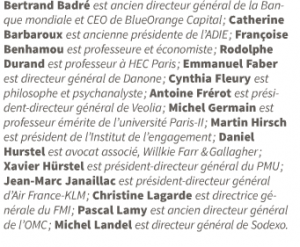
La socioperception @ Irène Dupoux-Couturier
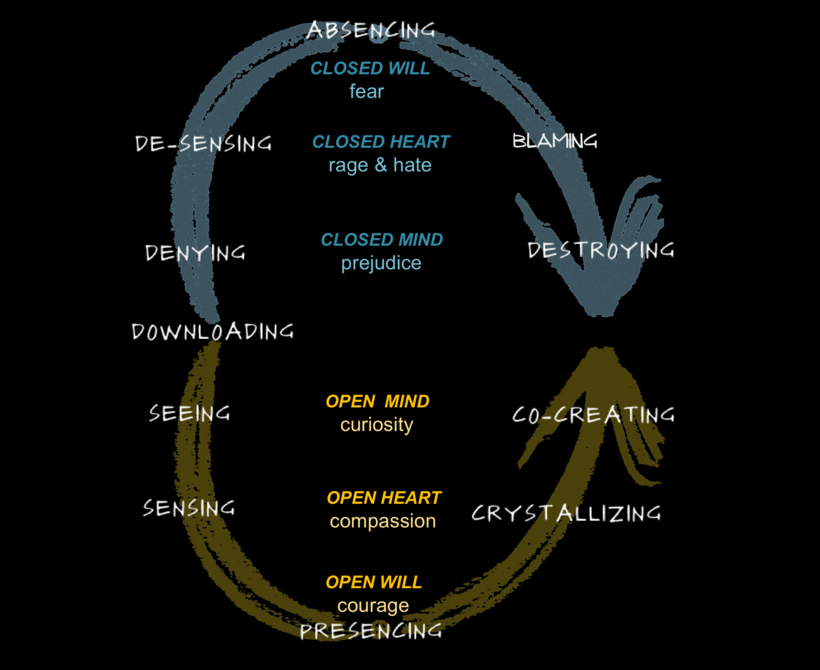
On the Making of Trump – The Blind Spot That Created Him @ Otto Scharmer
We have entered a watershed moment not only here in America, but also globally. It’s a moment that could help us wake up to a deeper level of collective awareness and renewal—or a moment when we could spiral down into chaos, violence, and fascism-like conditions. Whether it’s one or the other depends on our capacity to become aware of our collective blind spot.
Donald Trump’s election as the 45th president of the United States has sent shock waves across the planet. In a replay of Brexit, a coalition of white, working- (and middle-) class men (and women) from mostly rural areas swept an anti-establishment candidate into office. But the election of Trump is hardly an outlier: just look at the global rise of strongmen such as Vladimir Putin, Recep Erdogan, Viktor Orban, and Rodrigo Duterte and the surge of other right-wing populists.
Why has the richest and most prosperous country in the world now elected a climate denier who used racist, sexist, misogynistic, and xenophobic language throughout his campaign? What makes us put someone like him in the White House? Why did we create a presidential election between two of the most disliked candidates of all time, Donald Trump and Hillary Clinton? Why did Trump, who lied and attacked minorities, journalists, women, and the disabled, only become stronger and stronger throughout his campaign? What is the blind spot that has kept us from seeing and shifting the deeper forces at play? Why, again and again, do we collectively create results that most people don’t want?
The Blind Spot
Trump and Clinton, from the viewpoint of the millennial generation, represent everything that’s wrong with America. Trump embodies everything that is wrong with our culture. Clinton embodies everything that’s wrong with our politics. And both of them embody everything that’s wrong with our economy.
Our collective blind spot reflects paradigms of thought that legitimize all three major divides: the economic divide, the political divide, and the cultural-spiritual divide. I’ve talked about these divides before, but now they seem more stark than ever.
The Economic Divide
There is a logical line from the Trump and Brexit votes back to the economic crisis of 2008, and from there to the deregulation of the Clinton and the Reagan years in the 1990s and 1980s. U.S. workers’ share of national income has been shrinking since the late 1990s, with the gains going to the top 1 percent. The average annual income growth in the United States for the bottom 90 percent has been negative for the past two decades.
Millennials have good sensors for this kind of disconnect. In the 2016 campaign, Bernie Sanders won significantly more votes among those under age 30 than Clinton and Trump combined. In a recent Harvard University survey that polled young adults between ages 18 and 29, 51 percent of respondents said they do not support capitalism. Just 42 percent said they do support it. Equally interesting is that only 33 percent said they support socialism.
What these responses suggest is that most young people may be looking for a different way to run our economy. They don’t want the failed system of Soviet socialism. Or the failed system of casino capitalism. Many young people wish to refocus the economy on justice, fairness, equality, and the deeper sources of meaning in life – what I call generating well-being for all.
This skepticism of young people towards the current economic system is not that surprising if you consider the bigger economic picture today: The United States is the most unequal of all high-income OECD countries, has the highest poverty rate of any advanced economy (17%), the highest obesity rate (36%), the highest incarceration rate, and student debt of $1.2 trillion.
Social mobility—the capacity to work your way up and realize your dreams—is weaker in America today than it is in Europe. As they say: if you want to realize the American dream, go to Denmark. These structural economic factors and forces of exclusion are the real drivers that elevated Trump to the presidency. Yet, instead of addressing these structural issues, the Clinton campaign chose to focus the conversation almost entirely on Trump’s personal flaws.
Why do so many people take these structural issues for granted? It’s the neoliberal economic ideology that Ronald Reagan and his team brought into the White House, that remained during the Clinton years, that continued to flourish during the Bush years, and that, in spite of 2008, continued to shape White House politics even after Barack Obama took office. The neoliberal economic paradigm continues to shape the Washington economic consensus. Our inability to replace that failed paradigm of “ego-system” economics with a more holistic and inclusive framework of “eco-system” economics has created an intellectual and moral void that allowed Donald Trump to connect with the “forgotten common man.” Which brings us to divide number two.
The Political Divide
The political system is rigged. Donald Trump is also right on this one, but for different reasons than he thinks. Hillary Clinton is the face of the current system. Yes, she has more experience and was better prepared for the job than any other candidate. But as Donald Trump reminded her, she had the “wrong experience” (translation: she embodies the status quo). As many polls over the past year indicated, Bernie Sanders would have won easily against Trump, even though his solutions were a work-in-progress at best. Elizabeth Warren probably would have won by a landslide if the party leadership could have persuaded her to run. But what did the Democratic Party leadership do instead? Manipulate the primary process so that Bernie lost and Hillary won. If the Democratic Party were democratic in its processes, the name of our new president-elect would be Bernie Sanders.
Yet the real political divide of our time is not between Democrats and Republicans. It’s between the insiders of the Washington system that is driven by lobbying and special interest-driven decision-making on the one hand and the forgotten communities without a voice on the other. Elected officials in Washington, regardless of their party affiliation, spend roughly 50% of their time fundraising and have almost no time left to talk to the less powerful real stakeholders that are affected by policymaking. That is the structural problem we face: too many groups are excluded and have no voice in the process of governance and decision-making. So, the second force that put Donald Trump in the White House is the enormous disconnect between voiceless communities and the Washington system of special interest group driven decision-making.
The Spiritual Divide
The biggest divide, however, is neither economic nor political. It’s a cultural-spiritual divide that is ripping our communities, our country, our culture, and our world apart.
The economic and political divides result from massive institutional failures. As the rate of institutional and systemic failure increases, we see citizens and leaders respond in one of the following three ways:
1. Muddling through: same old, same old.
2. Moving back: let’s build a wall between us and them.
3. Moving forward: lean in to what wants to emerge—empathize and build architectures of collaboration rather than architectures of separation.
What was the problem in this election? Hillary was the muddler; Donald was the wall builder. But there was no one in the third category.
It was interesting to watch the entire American media establishment try to take down Donald Trump (after creating him)—only to realize that all their attacks only made him stronger. The only effective voice against him was Michelle Obama’s. She was the one who could take the air out of him. And she did, even to the degree that the Trump camp decided to stop attacking her. What made the First Lady, who has high approval ratings among Democrats as well as Republicans, so much more effective in dealing with the Trump phenomenon?
When you watch her speeches in New Hampshire and Phoenix you see the answer: she responded to him not with hate and fear. Instead, she spoke with empathy, authentic reflection, and compassion. She courageously exposed her own vulnerability showing up as a human being. Michelle Obama also does not primarily focus on the “opponent,” but rather on her own experience, her own opening process, and on the positive future that she feels is wanting to emerge. That’s what it takes to be a warrior of the third category, a warrior of the open heart: as you engage the current moment, your eye is on the future that is seeking to emerge—not on the past that you try to fight against.
Someone who fits that third category would blend the compassion and presence of a Michelle Obama with the systems change focus of an Elizabeth Warren. Such a person (or combined 2020 ticket) would need to connect with a powerful global movement of changemakers who collaborate around new forms of economic, political, and cultural renewal.
Systemic disruption
Figure 1 shows how the three responses to systemic disruption give rise to three conflicting cultures:
1. Downloading: same old, same old.
2. The cycle of absencing: denying, de-sensing, blaming, and destroying (closing the mind, heart, will).
3. The cycle of presencing: seeing, sensing, crystallizing, and co-creating (opening the mind, heart, will).
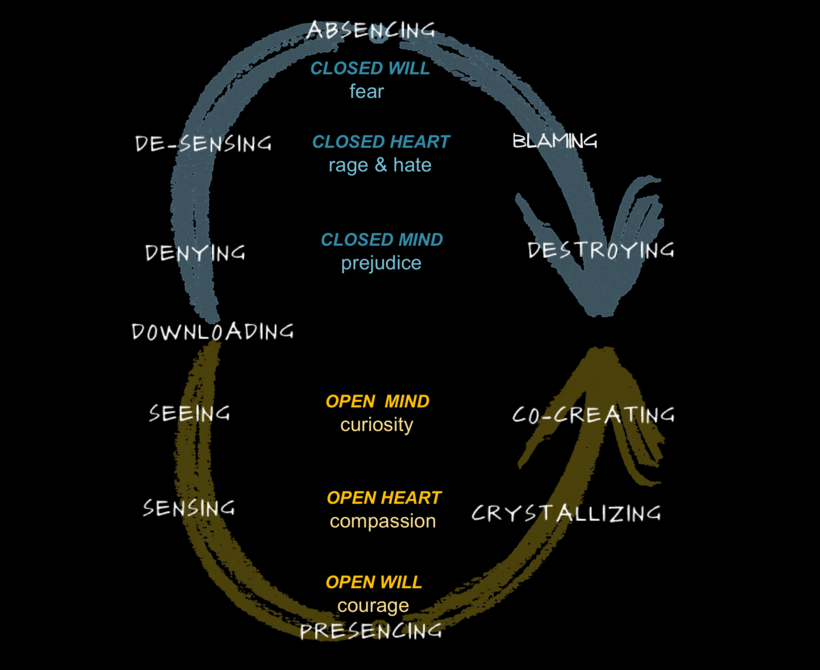
Figure 1: The Social Fields of Presencing and Absencing
So what is it that is ripping our communities apart? It’s that the social field of absencing, that is, the closing of the mind, heart, and will, keeps ampliying prejudice, hate, and fear because it’s supercharged by business (its a billion dollar media industry) and technology (with Facebook and Google keeping us well inside our echo chambers or filter bubbles). Moreover, nearly one-fifth of election-related tweets came from bots, from robots, according to a new study by University of Southern California researchers. Our social media is designed to systemically spread and amplify negativity, its not designed around an intention to build community and generative cross-boundary dialogue.
What We Are Called to Do Now
Will President Trump act like candidate Trump? Or will he evolve and grow with the demands of the job (like others did before him)? We don’t know. Most likely his biggest contribution will be that he helps us recognize the other (downside) part of our culture that needs loving attention, compassion and transformation. As the German poet Goethe put it so eloquently when making Mephistopheles – representing the role of the “evil”- say : “I am part of that force which eternally wills evil and eternally works good.”
What is the “good” that President Trump could work for us? Here is a short list:
Letting go of any illusion that the necessary changes of our time will originate from the White House or any other top-down structure. It will come instead from a new global movement of local and multi-local change makers that apply the mindset of Michelle Obama (open mind, heart, will) onto the transformation of the collective.
As we begin responding to the disruption of this week, we have an opportunity to organize in new ways that go beyond the usual responses to disruption:
1. Personal rage : taking it out on something outside ourselves,
2. Personal change : using that energy to transform oneself, or
3. Movements that react against the symptoms of the social and ecological divides.
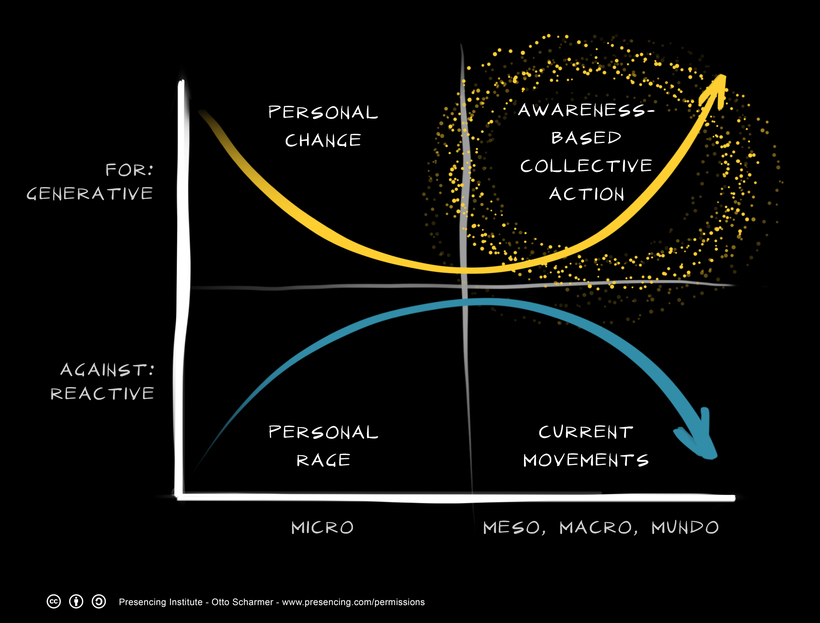
Figure 2: Four types of response to disruptive change
What is called for today is a massive response that reaches into the upper right quadrant (figure 2): focusing on evolving and transforming the collective. What’s missing most is an enabling infrastructure that supports initiatives to move into the top right quadrant of co-creating change.
The good news is, that the future is already here – many initiatives already exist in which cross-sector groups work from seeing the whole (eco-system awareness) rather than from a silo-view (ego-system awareness).
Summing up, the blind spot at issue here concerns the dominant paradigms of thought that have legitimized the economic, political, and spiritual divides which—in conjunction with the mindless use of social media and technology—gave rise to the Trump movement and presidency. To overcome or bridge these divides calls for nothing less than regenerating the foundations of our civilization by updating the key operating codes on which our societies operate:
- Economy 4.0: evolving our economy from ego-system economics to eco-system economics by refocusing the economic activity (and the use intentional use of money) toward generating well-being for all
- Democracy 4.0: evolving our democracies toward engaging people in ways that are more direct, distributed, democratic, and dialogic and that ban the toxic and corrupting influence through (unrestricted) money
- Education 4.0: evolving our educational systems toward freely accessible infrastructures that help individuals, communities and multi-stakeholder groups to activate the deep human capacity to co-sense, co-shape and co-create the emerging future in their own context any place and any time.
To advance such an agenda of profound societal renewal will require
· New collaborative platforms, online-to-offline, that allow pioneering change makers from across sectors to directly engage with each other
· A constitution for the global digital space that makes the Facebooks and Googles accountable to citizens, communities and civil rights worldwide.
· Massive free capacity building mechanisms that build the deeper innovation capacities at scale (curiosity, compassion, courage)
· And new concepts like basic income grants for all that would replace our current system of organized irresponsibility through an ecology of entrepreneurship that is driven by passion and purpose rather than profit – in other words, enabling people to activate their greatest gifts, and pursue the work they are truly passionate about.
MITx u.lab is a small prototype and platform that we started last year with the intention to help change makers who want to move their work into the fourth quadrant. What started as a MOOC is now a platform for 75,000 change makers from 180 countries that collaborate across 600 hubs. In 2017 we intend to move this platform to its next stage of catalyzing change at the scale of the whole system.
It’s one of several initiatives that helps us remember what matters most: that as warriors of the third category, we need to fully engage the present moment whilst keeping our eye on the future that is seeking to emerge. Our old civilizational forms are much more fragile than anyone might have thought. But our capacity to regenerate them from the deepest source of our humanity is also more present and available than ever—now.
Thanks to Adam Yukelson for helpful comments and to Kelvy Bird for the figures.
